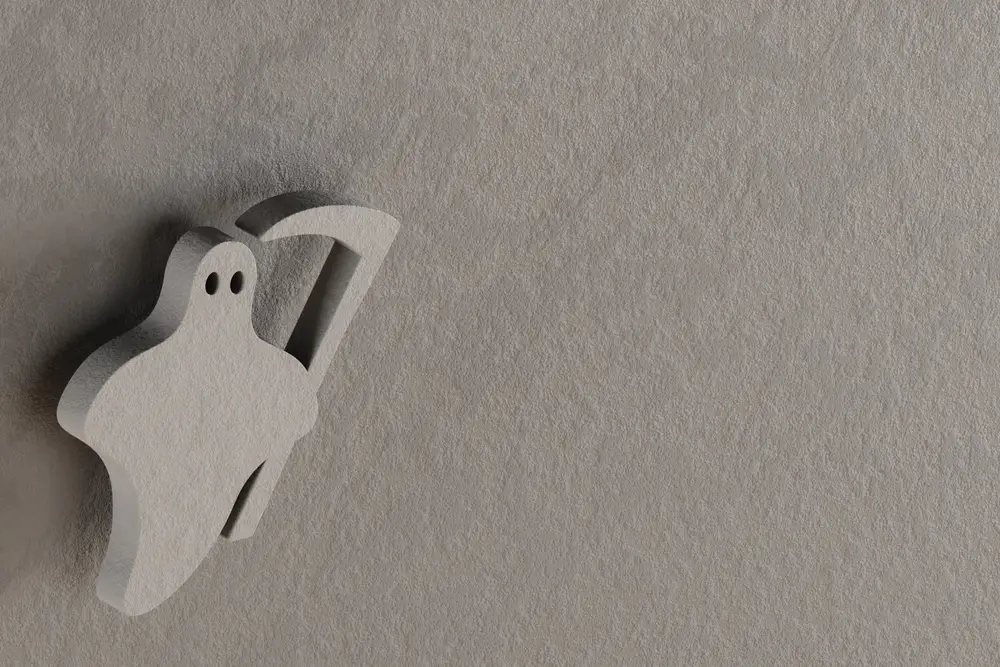“I do not fear death. I had been dead for billions and billions of years before I was born, and had not suffered the slightest inconvenience from it.” Mark Twain
How Can We Accept Mortality?
Some call it “curtains,” and there are other synonyms for death, like the Grim Reaper or that phrase “the other side.” No matter what you call it, mortality is an inevitable part of life and something that older people must come to terms with. Accepting morality comes with simply being alive.
While it can be a difficult reality to process, embracing death and mortality can also bring peace and a sense of closure. There is no viable negotiation to exempt us from our own death. Unless you’re a Douglas Fir or Western Red Cedar Tree capable of living over 1,000 years, our mortality comes much sooner. Understanding how seniors accept mortality can provide valuable insights into how we can support our loved ones through this process.
Meeting the Grim Reaper is something we all dread, but the inevitability of death is non-negotiable.
Am I ready to Die?
Many factors contribute to how seniors view their death. Cultural and societal influences, spiritual and religious beliefs, and psychological aspects all play a role. Some seniors may find comfort in their faith, while others find solace in spending time with family and loved ones. Medical perspectives on mortality can also initiate practical considerations such as end-of-life care and estate planning.
Dealing with end-of-life is a complex process unique to each individual. By exploring the various factors that contribute to how seniors view mortality, we can gain a better understanding of how to support our loved ones around this life-changing event.
From the Daily Stoic and author Ryan Holliday comes this bit of wisdom: “Meditating on your mortality is only depressing if you miss the point. It is in fact a tool to create priority and meaning. It’s a tool that generations have used to create real perspective and urgency. To treat our time as a gift and not waste it on the trivial and vain. Death doesn’t make life pointless but rather purposeful.”
Additionally, there are some other interesting perspectives such as that offered in an article from The Atlantic.

“Death smiles at us all; all a man can do is smile back.” — Marcus Aurelius.
Understanding and Accepting Mortality
As you age, it’s natural to start thinking more about mortality or THE END of your journey on this earth. Death is a part of life, something non-negotiable and accepting this reality may help you make the most of the time you have left.
Here are some things to keep in mind as you come to terms with your own mortality:
Death is a natural part of life
No one lives forever, and death is a natural part of the cycle of life. While it can be difficult to accept that you won’t be here forever (and there are no exceptions), remember that everyone eventually faces the same fate. Jim Morrison summed it up when he said: ” No one here gets out alive…. ”
“Analysis of death is not for the sake of becoming fearful but to appreciate this precious lifetime.” – Dalai Lama.
Accepting mortality can give life meaning
Knowing that your time on earth is limited can make you appreciate life more. It can motivate you to make the most of every moment and pursue the things that truly matter. Embracing your mortality can be a motivator to find purpose and meaning in life.
Aging can bring new opportunities
As you age, you may find that your priorities and interests change. There is more time to pursue hobbies or spend time with loved ones. You may also have the opportunity to reflect on your life so far and to make peace with past regrets or mistakes. Aging can bring new opportunities for growth and self-discovery.
Dying can be a peaceful process
While dying is never easy, it can also be a peaceful process for many people. Hospice care and palliative care can help manage pain and symptoms and can provide emotional support for both the dying person and their loved ones. Knowing that you will be cared for and supported during this time can help ease some of the fear and anxiety surrounding death.
Time is precious
No one knows how much time they have, so it’s important to make the most of every moment. Time is precious, so don’t waste it on things that don’t matter.

Emotional Responses to Mortality
As an older person, you may experience a range of emotions when contemplating and accepting your own mortality. These responses can include fear, anxiety, acceptance, peace, grief, and loss. Understanding them can help you navigate the challenges of aging and end-of-life planning.
Fear and Anxiety
Fear and anxiety are common emotional responses to mortality. You may worry about the unknown, such as what will happen after you die or how you will die. This fear and anxiety can be overwhelming and may cause you to avoid thinking about or planning for the end of your life.
To manage fear and anxiety, it is helpful to talk to a trusted friend or family member about your concerns. You may also find comfort in spiritual or religious practices, such as prayer or meditation. Seeking professional counseling or therapy can also be useful.
But, really, who wants to live forever when dear friends and family have departed, taking with them the common history you shared?
Acceptance and Peace
As you come to terms with your death, you may experience a sense of acceptance and peace. This can be liberating as it allows you to focus on living your life to the fullest and making the most of the time you have left.
To cultivate a sense of acceptance and peace, it can be helpful to reflect on your life and the legacy you wish to leave behind. You may also find comfort in spending time with loved ones, pursuing hobbies and interests that bring you joy, and engaging in activities that give your life meaning and purpose.
“If you live each day as it was your last, someday you’ll most certainly be right.” Steve Jobs
Grief and Loss
As you age, you will face the loss of loved ones and friends. It is important to allow yourself time to grieve and to seek support from others.
To cope with grief and loss, it can be helpful to engage in self-care activities, such as exercise, meditation, or journaling. Remember that grieving is a natural and necessary part of the healing process. It is okay to take the time you need to process your emotions.
Overall, understanding and managing your emotional responses to mortality can help you navigate the challenges of aging with dignity and grace. By cultivating a sense of acceptance and peace and seeking support when required, you can make the most of the time you have left and leave a lasting legacy for your loved ones.
Cultural and Societal Perspectives
The way in which death is viewed and accepted can vary greatly depending on cultural and societal perspectives.
In some cultures, death is seen as a natural and even celebrated part of life. For example, in Mexico, the Day of the Dead is a holiday that honors deceased loved ones with colorful altars and offerings. Similarly, in some Native American cultures, death is seen as a transition to the spirit world and is celebrated with rituals and ceremonies.
On the other hand, in many Western societies, death is often viewed as a taboo topic and something to be avoided or feared. This can make it difficult for the elderly to accept their own mortality and lead to feelings of isolation and loneliness.
Furthermore, societal perspectives on aging can also impact how seniors view their own mortality. In some societies, aging is seen as a natural part of life, and older adults are respected for their wisdom and experience. In others, aging is viewed as a burden on society and older adults may be marginalized or ignored.
It’s important to recognize that cultural and societal perspectives on death and aging are not necessarily right or wrong, but they can have a significant impact on how seniors accept mortality.

“Death should take me while I am in the mood.” – Nathaniel Hawthorne
Role of Family and Loved Ones
As seniors face death, family and loved ones can play a crucial role in providing emotional support and comfort. Here are some ways in which family and loved ones can help seniors during this difficult time.
Children and Grandchildren
For many people, their children and grandchildren are a source of joy and comfort. Spending time with them can assist seniors in feeling connected to the world around them and giving them a sense of purpose. As a family member or loved one, you can help by:
- Visiting regularly: Regular visits result in the elderly feeling less isolated and more connected to their loved ones.
- Listening: Seniors may want to talk about their fears and concerns about mortality. Being a good listener ensures they feel heard and understood.
- Sharing memories: Sharing memories of happy times can help people feel more positive and less anxious about the future.
Support Systems
In addition to family and loved ones, older people may benefit from having a support system in place. This can include:
- Hospice care: Hospice care provides medical, emotional, and spiritual support for people nearing the end of their lives.
- Support groups: Joining a support group for seniors facing mortality can provide a sense of community and support.
- Counseling: Counseling can help seniors work through their fears and concerns about mortality and find ways to cope with their emotions.
As a family member or loved one, you might locate the support they need by researching local resources and offering to accompany them to appointments or meetings.
“Life is pleasant. Death is peaceful. It’s the transition that’s troublesome.” Isaac Asimov
Medical Perspectives on Mortality
Understanding medical perspectives on mortality is important because, in all likelihood, there will be medical intervention.
Palliative and Hospice Care
Palliative care is a type of medical care that focuses on relieving pain and other symptoms of serious illnesses. It is often provided alongside other medical treatments and is intended to improve the quality of life for patients. Hospice care is a type of palliative care intended for patients with a life expectancy of six months or less.
If you are facing a serious illness, your doctor may recommend palliative or hospice care. These types of care can help you manage pain, nausea, and other symptoms and provide emotional and spiritual support. They can also guide you and your family in making important decisions about care.
End-of-Life Care
End-of-life care is the medical care provided to patients nearing the end of their lives. This type of care is intended to help patients manage pain and other symptoms and provide emotional and spiritual support. It can also help patients and their families make important decisions about end-of-life care.
If you are facing death, your doctor may recommend end-of-life care. This can include palliative or hospice and other types of medical intervention. The goal of end-of-life care is to help you live as comfortably as possible in your final days.
Spiritual and Religious Beliefs
“We see a hearse; we think sorrow. We see a grave; we think despair. We hear of a death; we think of a loss. Not so in heaven. When heaven sees a breathless body, it sees the vacated cocoon & the liberated butterfly.” Max Lucado, Christian author, and preacher
As the elderly approach the end of their lives, they may turn to their spiritual and religious beliefs for comfort and guidance. These beliefs can help them make peace with their mortality and find meaning and connection. And there is something for everyone.
Afterlife Beliefs
One aspect of spirituality and religion that is comforting to seniors is the belief in an afterlife. Many religions have specific beliefs about what happens after death, such as reincarnation or heaven. Such beliefs can provide a sense of hope and comfort for those facing the end of their lives.
Even if a senior does not have a specific afterlife belief, comfort can be found in the idea that their spirit or soul will live on after they die. This might help them feel that their life has meaning beyond their physical existence.
Religious and spiritual beliefs can also provide a sense of community and support. Seniors may find comfort in attending religious services or participating in spiritual practices with others who share their beliefs. A sense of connection and belonging to something larger than themselves are comforting.

Psychological Aspects of Mortality
As an older person, accepting your mortality can be a difficult process affecting both your mental health and well-being. It is important to understand the psychological aspects of mortality in order to cope.
Anticipatory Grief
Anticipatory grief is a common experience for seniors who are aware of their mortality. It is the process of grieving before the actual loss occurs. This can be a healthy way to prepare for the inevitable, but it can also be overwhelming and lead to anxiety and depression.
To cope with anticipatory grief, it is important to acknowledge your emotions and express them in a healthy way. This can include talking to loved ones, seeking support from a therapist, or engaging in activities that bring you joy.
Denial and Acceptance
“Death, taxes and childbirth! There’s never any convenient time for any of them.” Margaret Mitchell, author of “Gone with the Wind”
Denial is a common coping mechanism for those who are facing their mortality. It is the refusal to accept the reality of death and can lead to avoidance and isolation. While denial can provide temporary relief, it can also prolong the grieving process and make it more difficult to cope.
On the other hand, acceptance is the process of acknowledging and coming to terms with one’s mortality. This can be a difficult process, but it can also provide a sense of peace and allow seniors to focus on living their remaining time to the fullest.
To move towards acceptance, it is important to acknowledge your emotions and seek support. It can also be helpful to engage in activities that bring you joy and purpose and to focus on the present moment rather than dwelling on the future.
Practical Considerations
As you age, it is important to consider practical matters related to your mortality. This can help ensure that your wishes are respected. Here are some practical considerations to keep in mind:
Living Wills
A living will is a legal document that outlines your wishes for medical treatment if you become unable to make decisions for yourself. A living will is a good sign that you are someone accepting mortality as reality. Such a will can include decisions about life support, resuscitation, and other medical interventions. By creating a living will, you ensure that your wishes are respected and that your loved ones are not burdened with difficult decisions.
To create a living will, you can speak with your doctor or an attorney. You can also find templates and resources online. Make sure to discuss your wishes with your loved ones and healthcare providers so that everyone is on the same page.
Prevention and Treatment
Preventing and treating medical conditions can help you maintain your quality of life as you age. This can include things like staying active, eating a healthy diet, and getting regular check-ups. If you have a chronic condition, working with your healthcare provider to manage it effectively is important.
In some cases, treatment for a medical condition may become more burdensome than beneficial. In these cases, you may want to consider hospice or palliative care. These services can help manage your symptoms and provide emotional support.
Discussing these practical considerations can be difficult, but you want to ensure your wishes are respected. By planning ahead, you will have peace of mind and can focus on enjoying the present moment.
Accepting mortality is a process, and taking your time is okay. Stay open-minded, stay connected to your loved ones, and focus on living a meaningful and fulfilling life with the time remaining.


